Interstellar
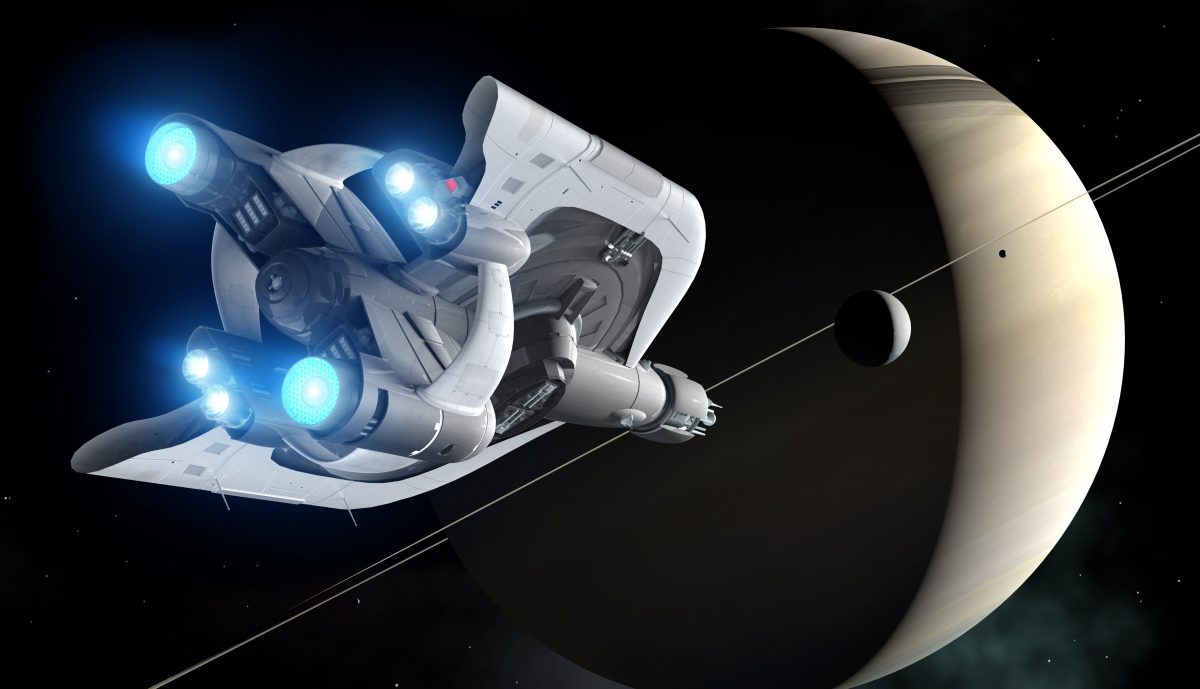
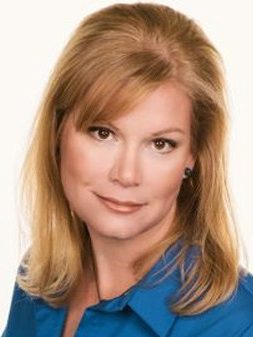
Track Chair:
Rhonda Stevenson
President & CEO, Tau Zero Foundation
Rhonda Stevenson is the President/CEO of the Tau Zero Foundation and a seasoned professional with 15+ years of business leadership and entrepreneurial experience in the aerospace sector. Recognized for demonstrating a natural aptitude for leading high performing teams, as well as for creating compelling marketing initiatives and branding positions that drive company objectives.
Track Chair:
Rhonda Stevenson
President & CEO, Tau Zero Foundation
Rhonda Stevenson is the President/CEO of the Tau Zero Foundation and a seasoned professional with 15+ years of business leadership and entrepreneurial experience in the aerospace sector. Recognized for demonstrating a natural aptitude for leading high performing teams, as well as for creating compelling marketing initiatives and branding positions that drive company objectives.
Speakers
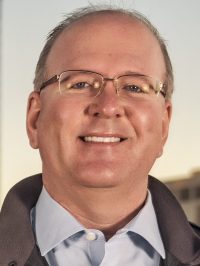
Jeff Greason
Tau Zero Foundation, Electric Sky, Agile Aero
Jeff Greason is an entrepreneur and innovator with 20 years’ experience in the commercial space industry. He is the CTO of Electric Sky, developing long-range wireless power for propulsion and other purposes; and Chairman of the Tau Zero Foundation, developing advanced propulsion technologies for solar system and interstellar missions. He has been active in the development of commercial space regulation and served on the Augustine Commission in 2009. Jeff was a cofounder of XCOR Aerospace and served as CEO from 1999 to early 2015. Previously, he was the rocket engine team lead at Rotary Rocket, and an engineering manager in chip technology development at Intel. He holds 25 U.S. Patents.
Presentation: Introduction to Tau Zero Foundation, Q- Drive Initiative
Jeff Greason
Tau Zero Foundation, Electric Sky, Agile Aero
Jeff Greason is an entrepreneur and innovator with 20 years’ experience in the commercial space industry. He is the CTO of Electric Sky, developing long-range wireless power for propulsion and other purposes; and Chairman of the Tau Zero Foundation, developing advanced propulsion technologies for solar system and interstellar missions. He has been active in the development of commercial space regulation and served on the Augustine Commission in 2009. Jeff was a cofounder of XCOR Aerospace and served as CEO from 1999 to early 2015. Previously, he was the rocket engine team lead at Rotary Rocket, and an engineering manager in chip technology development at Intel. He holds 25 U.S. Patents.
Presentation: Introduction to Tau Zero Foundation, Q- Drive Initiative



Dr. Gerald Jackson
Hbar Technologies
Dr. Gerald Jackson received his doctorate in the field of accelerator physics from Cornell University, where he studied collisions between electrons and positrons. From 1985 until 2000 he was instrumental in improving the performance of the Fermilab proton-antiproton collider program through enhancements in the production, manipulation, and storage of antiprotons. Dr. Jackson was a leader in the design, construction, and commissioning of the innovative 2-mile circumference antiproton Recycler ring. Designed to increase Fermilab performance by 2.5X, the Recycler and other upgrades actually resulted in an increase of more than a factor of five. His technical contributions to, and leadership of, the Recycler project won him the 1999 IEEE Particle Accelerator Science and Technology Award and earned him the status of Fellow in the American Physical Society. Since 2000 he has founded several companies, one working on antimatter propulsion problems for NASA and culminating in a 2016 crowdfunded study of antimatter production enhancements.
Presentation: Making Antimatter Propulsion Matter
Antimatter has the highest energy density known to mankind, making it a natural candidate for interstellar fuel in science, film, and literature. This talk is restricted to known, experimentally proven physics principles and proposes a method by which interstellar travel is possible with velocities approaching 10% of the speed of light. Current skepticism regarding antimatter-based propulsion is predominantly due to technical and financial concerns about production and storage of sufficient amounts of antimatter. In this talk a proposed antimatter production and storage facility is described capable of producing 20 grams of antimatter per year, enough for a robust interstellar exploration program capable of launching unmanned missions to nearby exoplanets by the congressionally mandated date of 2069.
Dr. Gerald Jackson
Hbar Technologies
Dr. Gerald Jackson received his doctorate in the field of accelerator physics from Cornell University, where he studied collisions between electrons and positrons. From 1985 until 2000 he was instrumental in improving the performance of the Fermilab proton-antiproton collider program through enhancements in the production, manipulation, and storage of antiprotons. Dr. Jackson was a leader in the design, construction, and commissioning of the innovative 2-mile circumference antiproton Recycler ring. Designed to increase Fermilab performance by 2.5X, the Recycler and other upgrades actually resulted in an increase of more than a factor of five. His technical contributions to, and leadership of, the Recycler project won him the 1999 IEEE Particle Accelerator Science and Technology Award and earned him the status of Fellow in the American Physical Society. Since 2000 he has founded several companies, one working on antimatter propulsion problems for NASA and culminating in a 2016 crowdfunded study of antimatter production enhancements.
Presentation: Making Antimatter Propulsion Matter
Antimatter has the highest energy density known to mankind, making it a natural candidate for interstellar fuel in science, film, and literature. This talk is restricted to known, experimentally proven physics principles and proposes a method by which interstellar travel is possible with velocities approaching 10% of the speed of light. Current skepticism regarding antimatter-based propulsion is predominantly due to technical and financial concerns about production and storage of sufficient amounts of antimatter. In this talk a proposed antimatter production and storage facility is described capable of producing 20 grams of antimatter per year, enough for a robust interstellar exploration program capable of launching unmanned missions to nearby exoplanets by the congressionally mandated date of 2069.


Wesley Deason
Ultra Safe Nuclear Corporation
Mr. Deason has been involved with high-temperature nuclear reactor development for space power and propulsion since 2010. Between 2013 and 2015, Mr. Deason assisted NASA Marshall Spaceflight Center in the Space Capable Cryogenic Thermal Engine design exercise through neutronic and thermal hydraulic optimization of the reactor core. Presently, Mr. Deason is an Engineer at USNC-Space where he conducts research and design of space reactors and contracts with NASA Marshall Spaceflight Center and Aerojet-Rocketdyne on the Nuclear Thermal Rocket project. He has written and presented 11 publications on space nuclear power or propulsion, including one journal publication.
Presentation: Advanced Carbide Nuclear Thermal Propulsion Fuel
Wesley Deason
Ultra Safe Nuclear Corporation
Mr. Deason has been involved with high-temperature nuclear reactor development for space power and propulsion since 2010. Between 2013 and 2015, Mr. Deason assisted NASA Marshall Spaceflight Center in the Space Capable Cryogenic Thermal Engine design exercise through neutronic and thermal hydraulic optimization of the reactor core. Presently, Mr. Deason is an Engineer at USNC-Space where he conducts research and design of space reactors and contracts with NASA Marshall Spaceflight Center and Aerojet-Rocketdyne on the Nuclear Thermal Rocket project. He has written and presented 11 publications on space nuclear power or propulsion, including one journal publication.
Presentation: Advanced Carbide Nuclear Thermal Propulsion Fuel




Jeff Greason
Tau Zero Foundation, Electric Sky, Agile Aero
Presentation: Sailbeam Update – Survey of “Self-Steering” Projectiles for LowDivergence Matter-Beam Propulsion
Jeff Greason
Tau Zero Foundation, Electric Sky, Agile Aero
Presentation: Sailbeam Update – Survey of “Self-Steering” Projectiles for LowDivergence Matter-Beam Propulsion
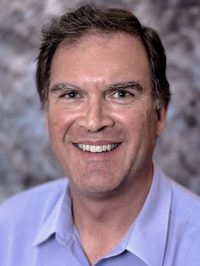


Grant Anderson
CEO, Paragon Space Development Corporation
Mr. Anderson co-founded Paragon in 1993. From the time of inception of the company until fall 2014, he was the VP of Engineering and Chief Engineer of the company and was responsible for the processes of engineering rigor. This process has been cited by many customers as unique, disciplined and highly productive. He has held diverse positions at Paragon including Treasurer/Secretary, CFO, Sr. VP of Operations, Chief Operating Officer and Director of Manufacturing before becoming President & CEO.
Recognized as a leader in the life support in extreme environments field, Mr. Anderson has lead the systems and conceptual design of multiple spacecraft under contract to Lockheed Martin, NASA, Inspiration Mars Foundation, SpaceX and Boeing and others. Paragon also executed the first commercial payload on the ISS and has pioneered membrane humidity control and modular revitalization systems for spacecraft.
Mr. Anderson holds two degrees from Stanford University in Mechanical Engineering (B.S.) and Aeronautical and Astronautical Engineering (M.S.) and is a registered Professional Engineer in the state of California.
Mr. Anderson is an avid bicyclist and is known to ride solo for hundreds of miles to clear his mind.
Mr. Anderson lives in Tucson with his wife of almost 30 years, Ines.
Presentation: Long-range Habitats; Mars and Beyond
Grant Anderson
CEO, Paragon Space Development Corporation
Mr. Anderson co-founded Paragon in 1993. From the time of inception of the company until fall 2014, he was the VP of Engineering and Chief Engineer of the company and was responsible for the processes of engineering rigor. This process has been cited by many customers as unique, disciplined and highly productive. He has held diverse positions at Paragon including Treasurer/Secretary, CFO, Sr. VP of Operations, Chief Operating Officer and Director of Manufacturing before becoming President & CEO.
Recognized as a leader in the life support in extreme environments field, Mr. Anderson has lead the systems and conceptual design of multiple spacecraft under contract to Lockheed Martin, NASA, Inspiration Mars Foundation, SpaceX and Boeing and others. Paragon also executed the first commercial payload on the ISS and has pioneered membrane humidity control and modular revitalization systems for spacecraft.
Mr. Anderson holds two degrees from Stanford University in Mechanical Engineering (B.S.) and Aeronautical and Astronautical Engineering (M.S.) and is a registered Professional Engineer in the state of California.
Mr. Anderson is an avid bicyclist and is known to ride solo for hundreds of miles to clear his mind.
Mr. Anderson lives in Tucson with his wife of almost 30 years, Ines.
Presentation: Long-range Habitats; Mars and Beyond
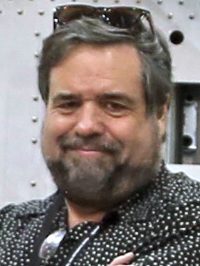



Rod Pyle
Ad Astra Magazine
Rod Pyle is a space author, journalist and historian who has authored 15 books on space history, exploration and development for major publishers that have been published in ten languages. He is the Editor-in-Chief for the National Space Society’s quarterly print magazine Ad Astra, and his frequent articles have appeared in Space.com, LiveScience, Futurity, Huffington Post, Popular Science, Caltech’s E&S magazine, and WIRED. He has written extensively for NASA’s Jet Propulsion Laboratory and Caltech, and authored the Apollo Executive Leadership Program for NASA’s Johnson Space Center. New book releases for 2019 include Interplanetary Robots, Space 2.0 (with a foreword by Buzz Aldrin), and First On the Moon (also with a foreword by Aldrin), which sold out on the day of its release. Rod’s previous Apollo books Missions to the Moon (foreword by Gene Kranz) and Destination Moon are being republished for 2019.
Rod is a sought-out public speaker, giving frequent keynotes throughout the country. He appears on national radio and television, with regular slots on KFI/Los Angeles, and WGN/Chicago (both market leaders), as well as popular podcasts and radio in numerous other markets. Rod hosts a podcast called Cool Space News on iHeart Radio, and appears on PBS’s Between the Lines and C-SPAN’s Book TV regularly. He holds an MA from Stanford University and a BFA from the Art Center College of Design. He lives in Alhambra, California.
Author, Journalist, and Editor-In-Chief, Ad Astra magazine for the National Space Society
• New Books for 2019 •
• “Space 2.0” • “Interplanetary Robots” • “First On the Moon” • “Mars: A Journey of Discovery” • “Heroes of the Space Age”• www.pylebooks.com
Presentation: Reality of Incremental Steps to Interstellar
Rod Pyle
Ad Astra Magazine
Rod Pyle is a space author, journalist and historian who has authored 15 books on space history, exploration and development for major publishers that have been published in ten languages. He is the Editor-in-Chief for the National Space Society’s quarterly print magazine Ad Astra, and his frequent articles have appeared in Space.com, LiveScience, Futurity, Huffington Post, Popular Science, Caltech’s E&S magazine, and WIRED. He has written extensively for NASA’s Jet Propulsion Laboratory and Caltech, and authored the Apollo Executive Leadership Program for NASA’s Johnson Space Center. New book releases for 2019 include Interplanetary Robots, Space 2.0 (with a foreword by Buzz Aldrin), and First On the Moon (also with a foreword by Aldrin), which sold out on the day of its release. Rod’s previous Apollo books Missions to the Moon (foreword by Gene Kranz) and Destination Moon are being republished for 2019.
Rod is a sought-out public speaker, giving frequent keynotes throughout the country. He appears on national radio and television, with regular slots on KFI/Los Angeles, and WGN/Chicago (both market leaders), as well as popular podcasts and radio in numerous other markets. Rod hosts a podcast called Cool Space News on iHeart Radio, and appears on PBS’s Between the Lines and C-SPAN’s Book TV regularly. He holds an MA from Stanford University and a BFA from the Art Center College of Design. He lives in Alhambra, California.
Author, Journalist, and Editor-In-Chief, Ad Astra magazine for the National Space Society
• New Books for 2019 •
• “Space 2.0” • “Interplanetary Robots” • “First On the Moon” • “Mars: A Journey of Discovery” • “Heroes of the Space Age”• www.pylebooks.com
Presentation: Reality of Incremental Steps to Interstellar
To the Stars: Science and Science Fiction in Interstellar Spaceflight
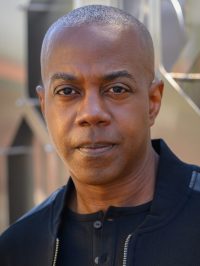


Jeffrey Morris
Future Dude Entertainment
Jeffrey Morris founded FutureDude in 2010 to bring back an old-school vibe and inject humanity and intelligent storytelling into to sci-fi entertainment. Morris is an award-winning director of commercials and documentaries for clients such as Prince, Delta Airlines and NASA. His directorial debuts, the animated adventure Parallel Man (starring John Cho and Ming-Na Wen) and the undersea thriller Oceanus: Act One (Bruce Davison and Malcolm McDowell) premiered in 2015. His first big-budget feature film, Persephone (starring Mary-Louise Parker, Brianna Hildebrand, and Emile Hirsch) will premier in 2020.
As production designer on all FutureDude productions, Morris builds worlds from the ground up through illustration and art direction. In addition to his work in entertainment, Morris is a self-taught science and space expert: he serves as a science education consultant and advisor to both the American Association for the Advancement of Science and NASA’s Jet Propulsion Laboratory; and he will be a guest presenter at the National Space Society’s 2019 International Space Development Conference spring 2019 in Washington, DC.
Jeffrey Morris
Future Dude Entertainment
Jeffrey Morris founded FutureDude in 2010 to bring back an old-school vibe and inject humanity and intelligent storytelling into to sci-fi entertainment. Morris is an award-winning director of commercials and documentaries for clients such as Prince, Delta Airlines and NASA. His directorial debuts, the animated adventure Parallel Man (starring John Cho and Ming-Na Wen) and the undersea thriller Oceanus: Act One (Bruce Davison and Malcolm McDowell) premiered in 2015. His first big-budget feature film, Persephone (starring Mary-Louise Parker, Brianna Hildebrand, and Emile Hirsch) will premier in 2020.
As production designer on all FutureDude productions, Morris builds worlds from the ground up through illustration and art direction. In addition to his work in entertainment, Morris is a self-taught science and space expert: he serves as a science education consultant and advisor to both the American Association for the Advancement of Science and NASA’s Jet Propulsion Laboratory; and he will be a guest presenter at the National Space Society’s 2019 International Space Development Conference spring 2019 in Washington, DC.




Rod Pyle
Ad Astra Magazine
Rod Pyle
Ad Astra Magazine
Panel: How Science and Fact Conspire to Create Breakthroughs




Moderator:
Jeff Greason
Tau Zero Foundation, Electric Sky, Agile Aero
Moderator:
Jeff Greason
Tau Zero Foundation, Electric Sky, Agile Aero
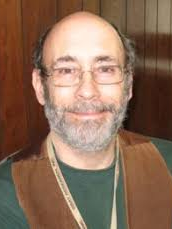

Panelist:
Dr. Gregory L. Matloff
New York City College of Technology
Dr. Gregory L. Matloff, emeritus associate and adjunct associate professor of physics at New York City College of Technology (NYCCT), has coordinated the astronomy program at that institution, has consulted for the NASA Marshall Space Flight Center, is a Fellow of the British interplanetary Society, is a Hayden Associate at the American Museum of Natural History and is a Corresponding Member of the International Academy of Astronautics. His pioneering research in solar-sail technology has been utilized by NASA in plans for extra-solar probes and in consideration of technologies to divert Earth-threatening asteroids. He served as guest professor at the University of Siena, Italy, in 1994, has chaired many technical sessions and was honored by NYCCT as Scholar-on-Campus during the 2008-2009 academic year. In 1998, he was a winner of a SETI competition sponsored by the National Academy of Discovery Science. He has authored or co-authored more than 100 research papers and nine books, which have been cited about 400 times. One of his books, “The Starflight Handbook” (Wiley, NY, 1989), was co-authored with MIT science-writer Dr. Eugene Mallove and helped establish interstellar-propulsion studies as a sub-division of applied physics. More recent books (“Living Off the Land in Space,” Springer, NY, 2007 and “Paradise Regained”, Springer, NY, 2009) co-authored with his artist wife C Bangs and NASA manager Les Johnson, have dealt with human space habitation and utilization. His 2008 book with Les Johnson and Italian researcher Dr. Giovanni Vulpetti (“Solar Sails: A Novel Approach to Interplanetary Travel”, Springer, NY) received an excellent review in “Nature.”Most recently he has published an artist’s book with C Bangs, “Biosphere Extensions: Solar System Resources for the Earth”. Greg Matloff was appointed an advisor to Yuri Milner’s Breakthrough Initiative Project Starshot in April 2016. In January 2017, he presented a Frontiers Lecture on interstellar travel at the American Museum of Natural History in Manhattan.
Panelist:
Dr. Gregory L. Matloff
New York City College of Technology
Dr. Gregory L. Matloff, emeritus associate and adjunct associate professor of physics at New York City College of Technology (NYCCT), has coordinated the astronomy program at that institution, has consulted for the NASA Marshall Space Flight Center, is a Fellow of the British interplanetary Society, is a Hayden Associate at the American Museum of Natural History and is a Corresponding Member of the International Academy of Astronautics. His pioneering research in solar-sail technology has been utilized by NASA in plans for extra-solar probes and in consideration of technologies to divert Earth-threatening asteroids. He served as guest professor at the University of Siena, Italy, in 1994, has chaired many technical sessions and was honored by NYCCT as Scholar-on-Campus during the 2008-2009 academic year. In 1998, he was a winner of a SETI competition sponsored by the National Academy of Discovery Science. He has authored or co-authored more than 100 research papers and nine books, which have been cited about 400 times. One of his books, “The Starflight Handbook” (Wiley, NY, 1989), was co-authored with MIT science-writer Dr. Eugene Mallove and helped establish interstellar-propulsion studies as a sub-division of applied physics. More recent books (“Living Off the Land in Space,” Springer, NY, 2007 and “Paradise Regained”, Springer, NY, 2009) co-authored with his artist wife C Bangs and NASA manager Les Johnson, have dealt with human space habitation and utilization. His 2008 book with Les Johnson and Italian researcher Dr. Giovanni Vulpetti (“Solar Sails: A Novel Approach to Interplanetary Travel”, Springer, NY) received an excellent review in “Nature.”Most recently he has published an artist’s book with C Bangs, “Biosphere Extensions: Solar System Resources for the Earth”. Greg Matloff was appointed an advisor to Yuri Milner’s Breakthrough Initiative Project Starshot in April 2016. In January 2017, he presented a Frontiers Lecture on interstellar travel at the American Museum of Natural History in Manhattan.



Panelist:
Jeffrey Morris
Future Dude Entertainment
Jeffrey Morris founded FutureDude in 2010 to bring back an old-school vibe and inject humanity and intelligent storytelling into to sci-fi entertainment. Morris is an award-winning director of commercials and documentaries for clients such as Prince, Delta Airlines and NASA. His directorial debuts, the animated adventure Parallel Man (starring John Cho and Ming-Na Wen) and the undersea thriller Oceanus: Act One (Bruce Davison and Malcolm McDowell) premiered in 2015. His first big-budget feature film, Persephone (starring Mary-Louise Parker, Brianna Hildebrand, and Emile Hirsch) will premier in 2020.
As production designer on all FutureDude productions, Morris builds worlds from the ground up through illustration and art direction. In addition to his work in entertainment, Morris is a self-taught science and space expert: he serves as a science education consultant and advisor to both the American Association for the Advancement of Science and NASA’s Jet Propulsion Laboratory; and he will be a guest presenter at the National Space Society’s 2019 International Space Development Conference spring 2019 in Washington, DC.
Panelist:
Jeffrey Morris
Future Dude Entertainment
Jeffrey Morris founded FutureDude in 2010 to bring back an old-school vibe and inject humanity and intelligent storytelling into to sci-fi entertainment. Morris is an award-winning director of commercials and documentaries for clients such as Prince, Delta Airlines and NASA. His directorial debuts, the animated adventure Parallel Man (starring John Cho and Ming-Na Wen) and the undersea thriller Oceanus: Act One (Bruce Davison and Malcolm McDowell) premiered in 2015. His first big-budget feature film, Persephone (starring Mary-Louise Parker, Brianna Hildebrand, and Emile Hirsch) will premier in 2020.
As production designer on all FutureDude productions, Morris builds worlds from the ground up through illustration and art direction. In addition to his work in entertainment, Morris is a self-taught science and space expert: he serves as a science education consultant and advisor to both the American Association for the Advancement of Science and NASA’s Jet Propulsion Laboratory; and he will be a guest presenter at the National Space Society’s 2019 International Space Development Conference spring 2019 in Washington, DC.




Panelist:
Rod Pyle
Ad Astra Magazine
Panelist:
Rod Pyle
Ad Astra Magazine



Panelist:
Dr. Gerald Jackson
Hbar Technologies
Panelist:
Dr. Gerald Jackson
Hbar Technologies



